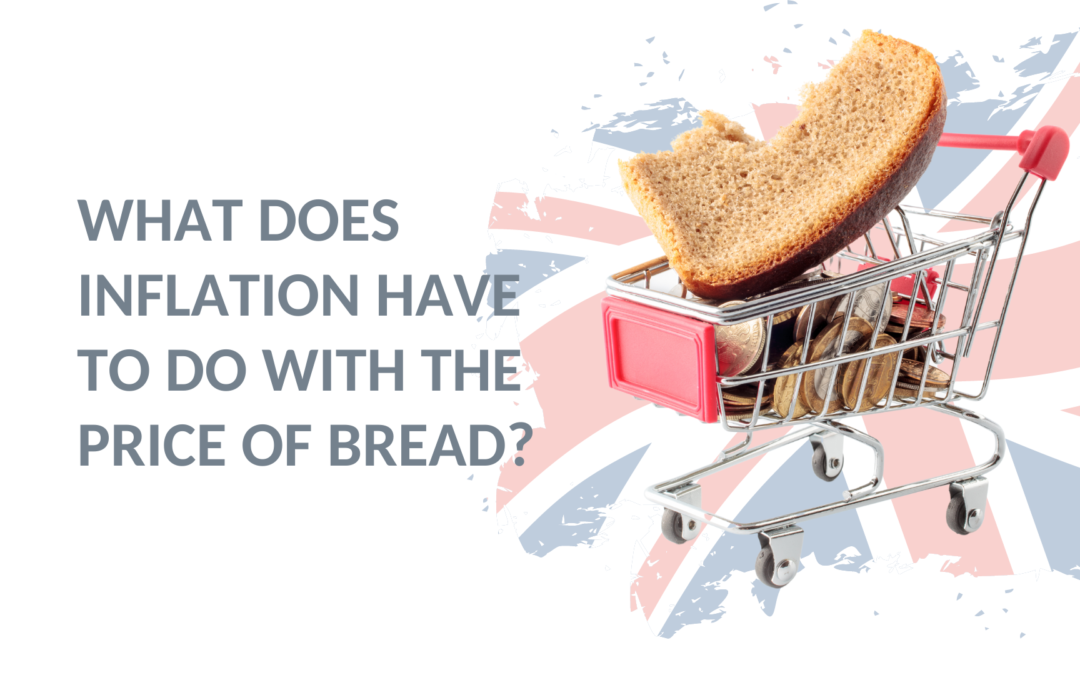Inflation has been on the rise for much of 2021, due to the strong economic recovery from the coronavirus pandemic, the rise in energy prices, gas supply issues, and global supply chain disruption; all compounded by the aftermath of Brexit.
The most recent figures showed the consumer price index (inflation rate) dipped slightly to 3.1% in September. The Bank of England (BOE) has since warned this figure could rise “close to or even slightly above 5% early next year”.
It appears likely that the BOE will soon react with an interest rate hike.
How will this impact you and your assets?
Inflation erodes the value of your assets, reducing your future purchasing power. Inflation is a measure of how much the price of goods and services have gone up over time. Almost always these goods and services are more expensive now than they were even a few years ago.
It is vital to ensure that your investments are properly managed to ensure that your money is at least keeping pace with inflation.
ONS figures reported on 20 October 2021, show that in January 1971 Aunty Pauline paid 10p for a loaf of white bread. That same loaf of bread in September 2021 now costs her £1.07.
Although less dramatic than death or taxes, inflation can be more devastating to your portfolio given that its effects go largely unnoticed by most. Over time, the effects of inflation are a near certainty. It really is the “worst tax” but something a qualified financial planner can help mitigate against through prudent investment and financial planning.
There is no escaping a high inflation environment is not good for savings or investments. Exposure to inflation is most notable with cash.
While maintaining liquid cash for an emergency fund is part of any good planning strategy; it is important to understand the pressure inflation really puts on your cash holdings.
Inflation and Interest Rates
Inflation rates measure the cost of living but can also influence interest rates. Theoretically speaking, inflation and interest rates have an inverse relationship. When interest rates are low, inflation tends to rise – and vice versa.
For example, when considering the impact inflation will have on the purchasing power of your portfolio; You put £10,000 of your hard-earned cash into the bank, if that account pays you an interest rate of 3%, a year later you will have £10,300. However, what if the inflation rate is 5%? It is true you have more money, but the purchasing power is only £9,800. In real terms £500 less than what you could purchase a year ago.
Higher inflation can’t all be bad. If you are close to state pension age and eligible for the state pension or you are close to retirement and have some private pensions, a defined benefit pension scheme, it will appreciate in line with inflation, or they are “inflation linked” and will benefit from the “Triple Lock” introduced in 2010. This means they will rise each year by the highest of the following three factors; 2.5%, inflation (as calculated by the consumer prices index) or average wage growth. Following the coronavirus pandemic, the government has temporarily suspended the triple lock and in April 2022 the average wage growth element will be removed.
Investment and Inflation Rates
Cash savings accounts have their uses, but they are not generally the ideal places to keep your money over the longer term. Almost always interest rates are lower than inflation rates, ultimately reducing the future purchasing power of your cash savings.
Depending on your circumstances, if you are earmarking money for the future – 5 years or more, it is almost certainly better to make investments and generate higher returns. Using your cash to invest across a range of industries and asset classes provides a way to protect against inflation. While there is more risk mitigating inflation is maximised.
Warren Buffett suggests another way to future-proof your investments; maximising your annual subscription into Stocks and Shares, ISA or Self-Invested Personal Pension and engaging in pound-cost averaging. This allows you to commit to a cash investment figure and buy shares every month, like clockwork. The aim of this approach is to smooth out volatility and build up the value of your ISA or pension pot over a period of time; through the purchase of relatively more, or sometimes relatively less units for your money, depending on whether markets are falling or rising and the current rate of inflation.
Maximising your savings into a more tax efficient environment will also reduce your overall tax liability on those savings and protect the future value of your net worth. Taking advantage of these allowances will reduce the exposure of your retirement assets being eroded by inflation.
Final Thoughts
Inflation doesn’t have to be a bad thing for your investments, with forward planning it is possible to protect your portfolio from depreciation as a result of high inflation rates. Financial planning from qualified financial advisers can help to ensure your investments rise above the rate of inflation, so that your money is working for you.
At Finsbury Associates we have both the expertise and experience in guiding you through the options available to you. Get in touch with us for a complimentary portfolio review or consultation.

